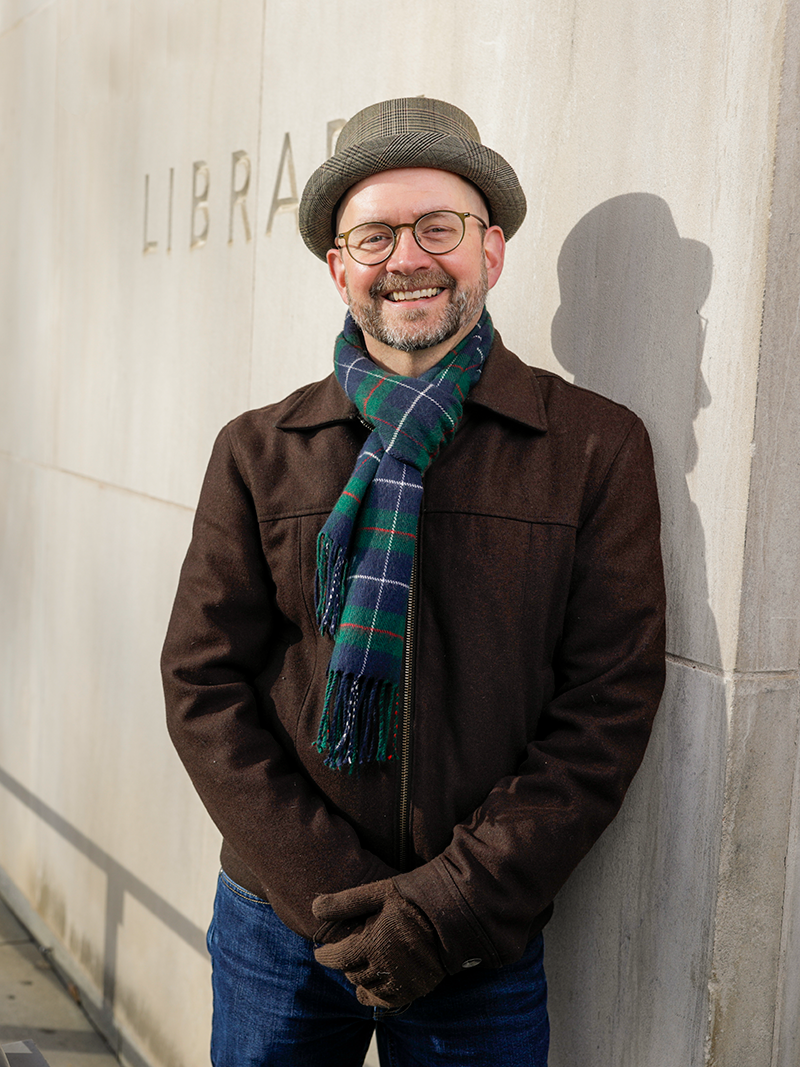
Martin Garnar became Amherst’s head librarian in August 2020. He arrived from the University of Colorado Colorado Springs, where he was dean of the Kraemer Family Library. In this edited and condensed interview, he puts a librarian’s lens on intellectual freedom, free speech and other big issues of our time.
Garnar chaired the American Library Association’s Intellectual Freedom Committee and edited its Intellectual Freedom Manual. He also received an American Library Association award for “significant contributions defending intellectual freedom.”
“Intellectual freedom, for libraries, is trying to make sure that people can decide what they want to read, and not have other people make that choice for them or their children,” he says.
“Oftentimes it’s, ‘I don’t want my kid to see this, so no kid should see this,’” Garnar says. “You can talk to your kids about what they should and shouldn’t consume, but don’t make those decisions for other people’s kids. Privacy is another part of that, because if people have fear of being monitored or surveilled, then they may not research things that are more controversial. That can have a chilling effect.”
For a long time the message has been, “We want more speech. We want people to have access to all kinds of expression.” Well, what does that mean about hate speech? In the past, it was common for First Amendment advocates to just say, “We’re going to be neutral.” Now there’s a big push in the profession to say, “We believe in social justice, in equity of access, in righting historical wrongs.” How can we take a stand for inclusion, equity and diversity and still stand for free speech? My thinking is to look at how they support each other. The top two things [being challenged and censored] right now are critical race theory and LGBTQ content. Historically marginalized people, or materials related to them, have been the target of those who don’t want that information in libraries. In 2021 the American Library Association’s Code of Ethics was revised to talk specifically about racial and social justice and the responsibility of library workers to uphold it.
I was in the Out Loud Colorado Springs Men’s Chorus for five years. I like to bake, and I’ve been having to adjust my recipes back to low-altitude baking. I like to garden. I like to hike. My husband and I have a miniature dachshund named Finnegan. I read a lot: I’m a librarian; it’s kind of an occupational hazard.
My husband, Mark, would always tell me, “You should go on one of these game shows.” He heard on the radio that they were doing the online test, and he signed me up for it without telling me. The show was popular with the students on my campus, and so they were excited to see me on there, and extremely excited that I got a question about The Simpsons correct.
I’m looking for ways that I can build relationships, so that the library can really be integrated into campus life. When a project comes up, I want people to think, “Oh, the library should be involved in this.” I want that to be an automatic reflex: that they see the value that we bring to all parts of the academic experience.
“I read a lot,” Garnar says. “I’m a librarian; it’s kind of an occupational hazard.”
Photograph by Maria Stenzel